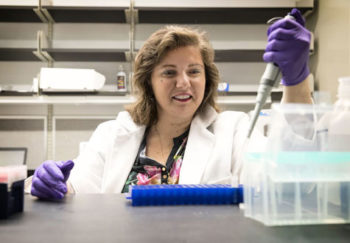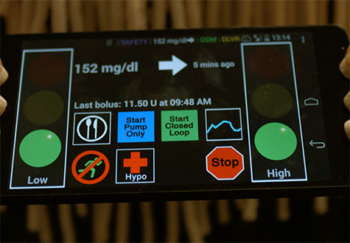
A monthly roundup of UVA Health expertise highlighted in local and national media outlets. Find out the latest news in medicine and health.
 About 1 in 5 Americans have diabetes. Chances are, you know someone with the disease. My grandmother, for instance, had type 2 diabetes; my niece has type 1; and, during my first pregnancy, I had gestational diabetes. All types require a person and their loved ones to learn the basics of diabetes management.
About 1 in 5 Americans have diabetes. Chances are, you know someone with the disease. My grandmother, for instance, had type 2 diabetes; my niece has type 1; and, during my first pregnancy, I had gestational diabetes. All types require a person and their loved ones to learn the basics of diabetes management.
Diabetes management isn’t just about what you eat. You also pay attention to your activity levels. If you get sick, you have to exercise caution with any cold or flu medication you take.
This goes for family members and friends, too. If you’re planning holiday meals, you’ll want to consider making some low-carb and low-sugar options. And at any time of year, you’ll want to plan activities that don’t just center on food and candy. Support kids by connecting them to services like the UVA Children’s Fitness Clinic, where they learn how to stay active.
Read on for more advice on diabetes management.

A monthly roundup of UVA Health expertise highlighted in local and national media outlets. Find out the latest news in medicine and health.

Know the 4 ways to prevent a type 2 diabetic emergency, plus the 3 warning signs so you or a loved one can get help right away.

About 1 in 5 Americans with diabetes can't afford their insulin medication and practice insulin rationing. This is a dangerous practice but there's help.

A new research discovery from the School of Medicine about the effects of aging in our cells could help doctors cure diabetes, liver disease or possibly even reverse aging.

Heart disease depends on a number of factors, but metabolic syndrome refers to five measures that are commonly seen in patients who are likely to have a stroke, a heart attack or coronary artery disease. Find out if you're at risk.

Islet cell transplants can help treat patients with diabetes or chronic pancreatitis. Learn more about the UVA islet cell transplant program in this video with Kenneth Brayman, MD.

Researchers at UVA have developed a device that may help patients like Lauren who live with Type 1 diabetes. The device known as the Artificial Pancreas helps to monitor and regulate blood sugar in patients.

Susan Cluett, nurse practitioner at UVA's Children's Fitness Clinic, talks about ways to stop or reverse Type 2 diabetes through their program based on portion control, exercise, and behavioral modification.

This month, our researchers unveiled discoveries about conditions that affect millions in the U.S.: stroke, kidney disease and diabetes (a major cause of kidney disease). What does this mean for you? Better tools for diagnosis and treatment.

When you think of Tom Hanks, you might think of his iconic performances in "Saving Private Ryan" and "Forrest Gump." But Vim & Vigor, our family health magazine, featured Hanks on the cover for another reason. Like millions of Americans, he has type 2 diabetes. [caption id="attachment_10916" align="alignright" width="350"] Savannah…
Get stories & health tips every week